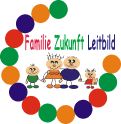Brenda Taggart MA, ILTM 

EPPE (Effective Preschool and Primary Education) Coordinator and Principal Investigator
School of Early Childhood and Primary Education
The Effective Provision of Pre-School Education (EPPE) Project,
School of Early Childhood and Primary Education, Institut of Education, University of London
Effective Preschool and Primary Education Project (EPPE).
The first major study in the United Kingdom
to focus specifically on the effectiveness of early years education 1997-2003.
A longitudinal study funded by the UK's Department of Education and Skills (DfES)
Part 9 of the Series Lecture „Vison – Future – Family. Family – the most important educational institution?!“ on
January 11th 2005 at the University of Bremen
Introduction to the lecture (in German) + Short biography
and bibliography + Background material to the EPPE project
Video + slides (MobileLecture) of the lecture - access is limited for the department, the teachers of the series lecture and the students of the department. A password can be send on demand <= click
EPPE is the largest study in Europe to investigate the effectiveness of pre-school education. This five year longitudinal study assessed the attainment and development of children between the ages of 3 to 7 years. Research began in 1997 and both quantitative and qualitative methods (including multilevel modelling) have been used to explore the effects of pre-school education on children's cognitive attainment and social/behavioural development at entry to school and any continuing effects on such outcomes two years later at the end of Key Stage 1 (age 7).
To investigate the effects of pre-school education for 3 and 4 year olds, the EPPE team collected a wide range of information on over 3,000 children, their parents, their home environments and the pre-school settings they attended.
Settings (141) were drawn from a range of providers (local authority day nursery, integrated centres, playgroups, private day nurseries, maintained nursery schools and maintained nursery classes). A sample of ‘home' children (who had no or minimal pre-school experience) was recruited for comparison with the pre-school group. In addition to investigating the effects of pre-school provision on young children's development, EPPE explores the characteristics of effective practice (and the pedagogy which underpin them) through twelve intensive case studies of settings with positive child outcomes.
In addition to pre-school centre effects, the study investigated the contribution to children's development of individual and family characteristics such as gender, ethnicity, language, parental education and the educational environment of the home. The research design addresses a variety of research issues (methodological and practical) in investigating the impact of pre-school provision on children's developmental progress.
EPPE has demonstrated the positive effects of high quality provision on children's intellectual and social/behavioural developmental.
Time: Tuesday, January, 11th 2005, 19-21Uhr
Place: lecture room 1010 ("Kleiner Hörsaal") Building "Keksdose“, Ecke�Enrique-Schmidt-Str./Boulevard auf dem Universitätscampus => to the plan
Poster for the Taggart-Lecture on 11th Januar 2005 (in German)
Review for the Taggart-Lecture on 11th Januar 2005 (in German)
Links + Material to the Taggart-Lecture on 11th Januar 2005 resp. "Early Childhood Education and Care ECEC" (in German)
Videos and Folios of the lectures (Mobile Lecture)
 <= Overview about the series of public lectures (in German)
<= Overview about the series of public lectures (in German)
download: Series Lecture -Flyer bzw. Series Lecture-Poster (both in German)
 <= Webmaster
<= Webmaster
© H. Metzen (State: 20100406)

